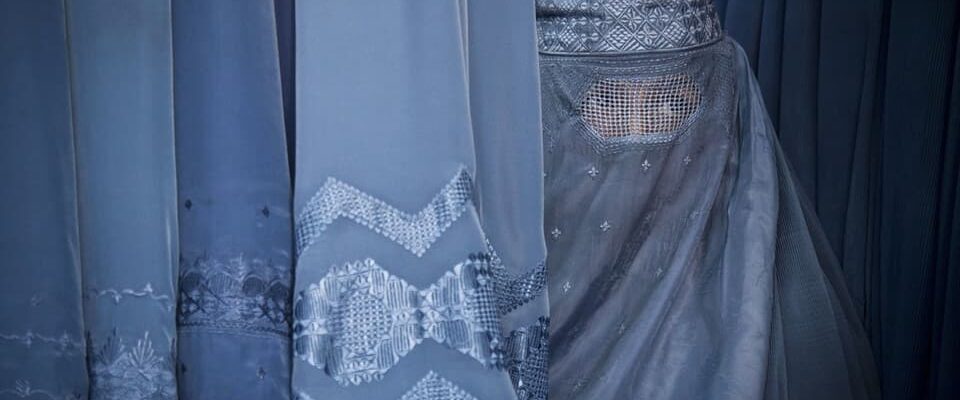Contents
The UN is faced with a dilemma that the Security Council must now deal with. It’s about whether the United Nations should officially recognize the Afghan Taliban regime. Should the UN do this even if the Islamists continue their oppressive policies against women?
Two thirds of the Afghan population are dependent on humanitarian aid. The need is great and is even increasing. Since the withdrawal of NATO troops and the Taliban’s renewed seizure of power, the country has largely disappeared from the spotlight. Many governments and humanitarian organizations have withdrawn. The UN is still on site. But, as UN Secretary General Antonio Guterres recently complained, their appeals for donations for Afghanistan are hardly being met with any response. Less than seven percent of the required funds were collected.
Legend:
A woman in Kabul.
Keystone/ ANJA NIEDRINGHAUS
This is largely due to the fact that the Taliban regime is internationally outlawed. This naturally makes cooperation more difficult. And many potential donors fear, not without reason, that with humanitarian aid they would also be supporting the radical Islamists. Nevertheless, Guterres calls for more commitment.
Report: Isolation is not a recipe
The neighboring countries also want to work with the Taliban – for example in the fight against terrorism or drugs, but also because they want to exploit Afghanistan’s raw materials. A report written by former Turkish UN Ambassador Feridun Sinirlioglu now concludes that the continued isolation of the Taliban regime is not a recipe. The document can be understood as a request to the UN Security Council to officially recognize the Taliban as a government.
However, Naseer Faiq still represents Afghanistan at the UN. He represents the previous government that was put in a coup, and he firmly rejects recognition of the Taliban rulers by the United Nations: “There are no signals that the Taliban will appear more moderate after their return to power.” Corresponding widespread hopes have been dashed. Sima Bahous, head of the UN Women’s Organization, also speaks of an “unprecedented attack on women’s rights. The situation is getting even worse. Misogynistic decrees are being enforced more and more rigorously.” Guterres also emphasizes: “We cannot remain silent about this.”
Recognition is getting closer
The latest UN report calls for the Taliban to signal accommodation on the women’s issue so that in return their international isolation can be ended. But there are no concrete demands. And the religious fanatics turn a deaf ear to any criticism. “The world must recognize our government one way or another. We are the leadership in Kabul,” its spokesman Abdul Qahar Balkhi told Deutsche Welle. He doesn’t offer anything in return. The Afghan people are behind the Taliban precisely because of what they are doing. Women are unlikely to be included here. It is unlikely that they share this assessment.
Despite their intransigence, recognition of the Taliban regime as Afghanistan’s legitimate representative in the UN is getting closer. The Security Council could decide this very soon. Principles are often less important in politics than pragmatism. The isolation of a regime, no matter how inhumane it may be, is difficult to maintain in the long term.
